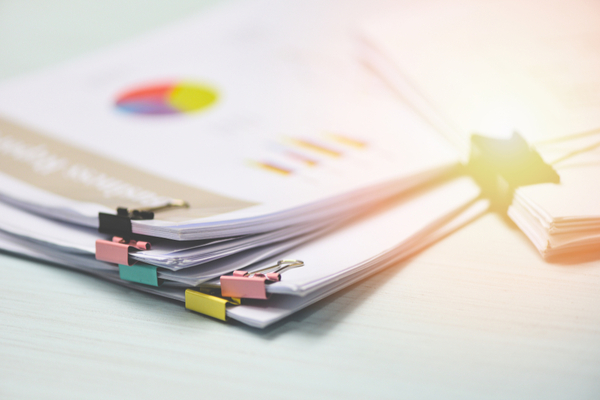The Value of Organizing Your Important Documents
As we like to say, a great value of estate planning is “giving you the peace of mind you deserve.” Knowing your estate is set up to protect you and your loved ones at a difficult and vulnerable time should give you that peace. Keeping and organizing the information you gather in preparing your estate plan is another way to make the most of the process. Compiling your documents when preparing your estate plan is an opportunity to take inventory of your assets, identify accounts and passwords, and confirm the whereabouts of important records (like deeds and car titles).
Organizing your vital documents serves a purpose beyond helping with your estate planning. Consider the risk of natural disasters and the loss of information that may occur in a fire, flood, or tornado. Such events can destroy records, leaving you to face the additional stress of reestablishing rights, access, benefits, and even identity at a difficult time.
In creating your estate plan, we ask you to document your assets, including bank accounts, brokerage accounts, retirement accounts, life insurance policies, vehicles owned, real estate owned, and significant personal property. Cryptocurrency is another important asset to document, especially since crypto-assets can be completely lost without passwords and access to “wallets” that hold their value. While you are locating these records, it can be useful to also locate your marriage certificate, birth certificates, social security cards, voter registration cards, driver’s licenses, and passports. Additionally, make note of your debit and credit card accounts, including the issuing entity and who is on each account. Once you start gathering information, begin a master list of accounts and documents, and be sure to note passwords for online access.
Once you have gathered key information and documents, you can decide what goes into a safe deposit box, what should be kept in a fireproof lockbox (consider waterproofing these items, too), and what should be copied or listed in a convenient place for future reference—something like a 3-ring binder. It is helpful to make copies of the documents in your safe deposit box and fireproof lockbox to include in your binder, so you have an inventory of the boxes’ contents. You can even make an electronic record by scanning documents and keeping a CD, flash drive, or cloud storage file for future reference.
In compiling and securing your vital documents, you will have the chance to review the status, accuracy, and adequacy of your personal and financial records. Organizing these documents and information as part of your estate planning process will streamline the work and ensure you get the greatest value from your efforts. Having your estate plan in place will give you peace of mind, and organizing your important documents will ensure you or your loved ones can navigate more easily through even the most difficult situations. At Kling Law Offices, we are happy to help lead you through this process. Contact our office today for your free consultation.

